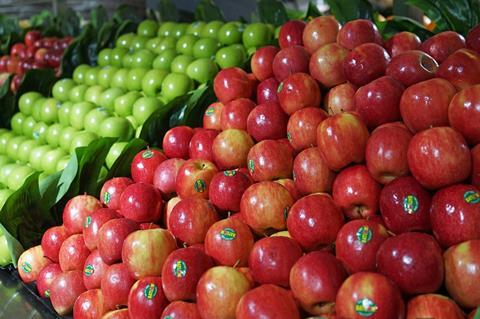State responds to industry calls for more time

South Australia has rolled back its ban on plastic fruit stickers set to come into effect this September, according to a report from the ABC.
South Australia was on track to become the first Australian state banning PLU stickers as part of broader initiatives addressing single-use plastic. However, the state government has pushed back the requirement telling the ABC it was “opting not to impose an extra cost on South Australian producers during tough times”.
The South Australia environment minister, Susan Close, told The Guardian the state remained committed to the reform.
“Many South Australians told us through previous surveys and consultations that they ‘loathed’ fruit stickers as an inconvenience to remove before they recycle their food scraps,” she said.
Cip Hamilton, the plastics campaign manager at the Australian Marine Conservation Society, told the publication the stickers often end up in compost bins and eventually contaminate the soil.
“Once in the environment, plastics are almost impossible to recover. Plastic fragments can cause devastating impacts to our wildlife and ecosystems,” Hamilton said.
Alternatives such as compostable sticker and laser etching have been successfully trialled across the industry, although the cost is prohibitive for many.
Adelaide Hills apple grower Joseph Ceravolo told the ABC a national approach could help this.
“The amount that was going to have to be produced for South Australia was so small it’s almost like a boutique item, which means that the cost of it was going to go up substantially,” Ceravolo said. “This is the next logical step to take in terms of reducing plastic in the industry, but it needs most of the major states to shift at the same time to make a level playing field for everybody and so we can guarantee supply.”
Many growers and industry bodies have also called for the same. In April 2024, International Fresh Produce Association A-NZ (IFPA A-NZ) managing director A-NZ at the time Ben Hoodless proposed amendments to the ban, calling for nationally consistent approach.
“This adds undue complexity to an already challenged supply chain, and with the ban coming in, may create an extra barrier for those supplying to South Australia,” he said.
Close told the ABC the state would now work alongside New South Wales to implement a ban at the same time, hoping to reduce the cost of alternative stickers in a bigger market.
“We’ve recognised that food producers are doing it pretty tough and are very concerned that the additional cost is going to make it difficult for them to continue to provide to South Australian markets,” she said.
“New South Wales already had a commitment that they would get rid of these plastic fruit stickers and move to compostable by 2030 – our discussion will be how much sooner than that can we go,” Close said.



